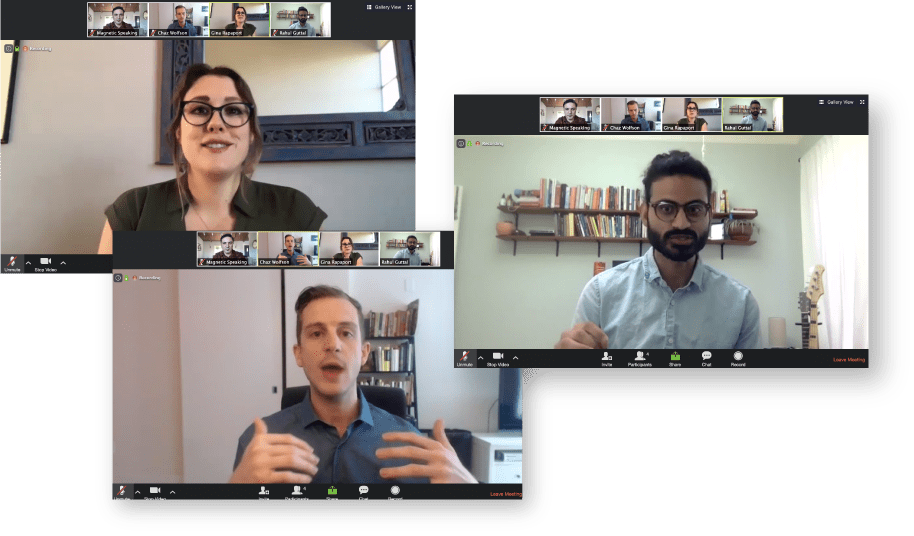5 Tips Online Speaking

Speaking online, whether through video conferencing, live streaming, or pre-recorded videos, has become an integral part of professional and personal communication. The rise of remote work, online courses, and social media has made online speaking a crucial skill for anyone looking to convey their message, build their brand, or simply connect with others across geographical distances. However, transitioning from in-person communication to online platforms can pose several challenges, including technical issues, lack of non-verbal cues, and difficulties in engaging the audience. Here are five tips to enhance your online speaking skills, helping you to communicate more effectively and make a lasting impression on your virtual audience.
1. Prepare Thoroughly
Preparation is key to successful online speaking. It involves not just rehearsing your content but also ensuring that your technical setup is flawless. Here are a few things to consider: - Content Rehearsal: Practice your speech or presentation several times in front of a mirror, record yourself, or speak in front of friends and family. This will help you refine your tone, pace, and body language. - Technical Check: A day before your live session, test your internet connection, microphone, webcam, and headphones. Invest in a high-quality webcam and microphone to ensure your video and audio are clear. - Environment Setup: Choose a quiet, well-lit space with a plain background. Minimize distractions by turning off notifications on your computer and phone.
2. Engage Your Audience
Engaging your audience is crucial for effective online communication. Since you can’t see your audience’s reactions, you need to be proactive in maintaining their interest: - Interactive Elements: Incorporate polls, Q&A sessions, and live chats into your presentations. This not only engages the audience but also provides you with immediate feedback. - Storytelling: People remember stories more than facts and figures. Use relevant anecdotes and examples to make your content more relatable and engaging. - Visual Aids: Utilize high-quality visuals, such as slides, videos, and animations, to break up the monotony of speaking and provide visualinterest.
3. Focus on Your Body Language
Even though you’re speaking online, your body language is crucial. It affects how confident and comfortable you appear to your audience: - Maintain Eye Contact: Look into the camera lens, not at your screen. This helps create a sense of direct communication with your viewers. - Use Gestures: Appropriate hand gestures can add emphasis and make your speech more engaging. However, be mindful of the camera frame and avoid excessive gesturing. - Posture: Sit up straight or stand during your presentation. Good posture can boost your confidence and energy levels.
4. Manage Your Nerves
It’s natural to feel nervous before speaking online, especially if you’re new to it. Here are a few strategies to manage your nerves: - Breathing Exercises: Deep breathing can help calm your nerves. Take a few deep breaths before you start speaking. - Positive Self-Talk: Encourage yourself with positive affirmations. Believe in your preparation and your ability to communicate effectively. - Focus on Your Message: Instead of worrying about how you’re coming across, focus on the message you’re trying to convey. Remember, your goal is to share valuable information or insights with your audience.
5. Adapt to Your Audience
Understanding your audience is vital for an effective online speaking session. Different audiences have different needs, preferences, and levels of engagement: - Know Your Audience: Research who your audience is, what they are interested in, and what they hope to gain from your presentation. - Be Flexible: Be ready to adjust your pace, content, or interaction based on audience feedback. This could mean spending more time on certain topics or answering unexpected questions. - Follow Up: After your session, send a follow-up message or email with additional resources or a summary of your key points. This helps keep the conversation going and builds a connection with your audience.
FAQ Section
What are the most common challenges faced by individuals when speaking online?
+The most common challenges include technical issues such as poor internet connection, low-quality audio or video, environment distractions, and difficulty in engaging the audience due to the lack of non-verbal cues.
How can I ensure my online speaking session is engaging?
+To ensure engagement, incorporate interactive elements like polls, Q&A sessions, and live chats. Use storytelling techniques, and include high-quality visuals such as slides, videos, and animations to break up the monotony of speaking.
What role does body language play in online speaking, and how can I improve it?
+Body language is crucial as it affects how confident and comfortable you appear. Maintain eye contact with the camera lens, use appropriate hand gestures, and ensure good posture. These elements can make your presentation more engaging and confident.
How can I manage my nerves before an online speaking session?
+Manage your nerves by practicing deep breathing exercises, using positive self-talk, and focusing on your message rather than your nervousness. Remember, your audience wants you to succeed, and they are interested in what you have to say.
Why is it important to adapt to your audience during an online speaking session?
+Adapting to your audience ensures that your message is received and understood. Be ready to adjust your pace, content, or interaction based on audience feedback. Knowing your audience and being flexible can significantly enhance the effectiveness of your online speaking session.
In conclusion, speaking online effectively requires a combination of thorough preparation, audience engagement, effective use of body language, management of nerves, and adaptation to your audience. By following these tips and continuously improving your skills, you can become a more confident and engaging online speaker, capable of conveying your message clearly and making a lasting impression on your virtual audience. Whether you’re presenting to a small group or a large audience, the principles of effective online speaking remain the same: be prepared, be engaging, and be adaptable. With practice and experience, you’ll find that speaking online becomes not just a necessity but an opportunity to reach and impact a broader audience than ever before.
